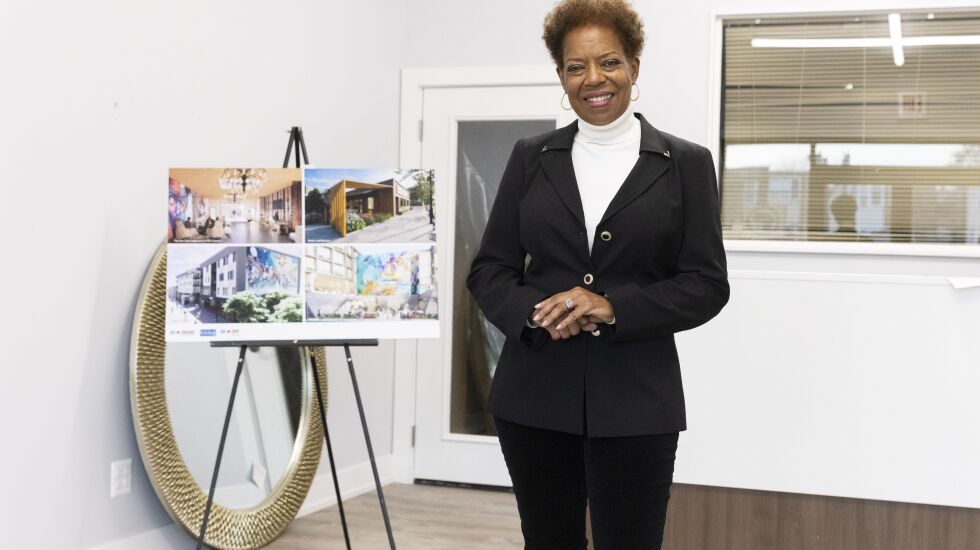
When Great True Vine Baptist Church was trying to stay in its building on West Division Street about 10 years ago, the Rev. John Collins went to a local bank, where he found a loan officer who knew the area.
That was Michelle Collins (no relation), a native of the Austin neighborhood.
Since then, that bank and another nearby have closed, leaving area residents with few options for financial services. The Leaders Network, a group of West Side faith leaders, wanted to do something about it.
So Collins turned to Michelle Collins again. The Leaders Network asked her to lead its effort to bring a credit union to Austin, and its goal is about to be realized.
“She’s been a great force in our community,” Collins said of Michelle Collins, who had retired from banking when she was approached about the new venture.
The Leaders Network hopes to finalize an agreement by year’s end with Great Lakes Credit Union, based in north suburban Bannockburn, which has 13 branches in the Chicago area.
“We’ve been depressed by banks for a long time. The same banks we hold our money in turn us down for loans and bombard us with bank fees,” John Collins said. “This credit union will bring stability, it will bring help.”

The partnership aligned with the credit union’s mission of expanding financial access, said Steve Bugg, president of Great Lakes. “We have a firm belief that if we can make the community better for residents and business, that makes it better for everyone, including Great Lakes.”
The two groups are finalizing how the location will be branded to recognize both partners, Bugg said. Membership would be open to anyone who lives or works in the credit union’s service area — Cook, Lake and DuPage counties.
Services will be offered first online and at pop-up locations. The permanent location, in the 5800 block of West Chicago Avenue, would open by the middle of next year. That space is in the same building as the offices of the African American Business Networking Association, a hub for local businesses.
Michelle Collins got involved during the pandemic. The retired banker recognized the impact that having access to non-predatory loans or just a bank account has on people’s lives.
“If you don’t have those financial services, you’re flying by the seat of your pants,” she said.
The Austin native also understood how widespread the need for services was in the area after two banks she worked for there closed — ShoreBank, near Laramie Avenue and Harrison Street, which closed around 2010, and the Austin Bank of Chicago, near Lake Street and Central Avenue, which closed in 2017.
Those closures are one reason so many area residents are considered “unbanked,” meaning they don’t have checking or savings accounts. Nearly 1 out of every 3 adults in Austin don’t have a checking or savings account, according to the Chicago Health Atlas. That compares to 1 in 10 in the city overall who don’t have accounts.
Michelle Collins said she plans to bring back the old ethos of those community banks.
“You won’t just be some random person that they look up and down and decide if you are worthy,” she said. “This is about solid, responsible lending to improve your family’s situation, which in turn improves the community.”

Raising the capital to establish a credit union, which operates much like a regular bank but is member owned, can take years, Michelle Collins said, which is why they chose to partner with Great Lakes.
“We’ll be there, not only to support new business ventures but also those that want to expand,” said David Cherry, president of the Leaders Network.
“It will be transformative. People who don’t have accounts will be able to get accounts, and people with accounts who have been unable to get expansive credit to do what they want will get it,” Cherry said.
Key to that process is having the credit union in the community, run by people who, like Michelle Collins, understand the area.
Residents who may have started off on the wrong foot but are now committed to helping their neighborhood flourish will get that chance, Cherry hopes.
“We can see the value of them wanting to take an eyesore of an abandoned building and turn it into a restaurant,” he said. “We see this as something that can be a game changer for folks on the West Side.”
Michael Loria is a staff reporter at the Chicago Sun-Times via Report for America, a not-for-profit journalism program that aims to bolster the paper’s coverage of communities on the South Side and West Side.





